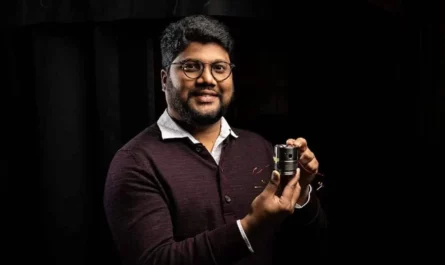Press

Today, April 11th, has been declared World Parkinson’s Day by the World Health Organization (WHO) and Parkinson’s Europe. He is reminiscent of the English doctor James Parkinson.
Eschwege – He first described the symptoms of the disease in a book in 1817. April 11th is his date of birth (1755-1824). We spoke to the neurology consultant Dr. Milena Euler about symptoms, diagnosis, course and treatment options at the Werra-Meißner Clinic.
What are the symptoms of Parkinson’s disease?
The symptoms of the typical, also known as idiopathic, Parkinson’s syndrome consist of rigidity, a feeling of stiffness and an increase in tone of the muscles, akinesia, which is a general slowing down, reduced facial expressions, fine motor skills problems, and tremor. This usually causes the hand or leg to tremble when at rest.
Is there a classic form of the symptoms?
The nature of these symptoms varies from patient to patient. For example, there are patients in whom the tremor is the main focus, in others there is a significant limitation of movement, or even a combination. The onset is often unilateral; there is usually a movement disorder in the arm or leg, which can also be painful, so the first visit to the doctor is often to an orthopedist.
Who is affected?
Parkinson’s disease predominantly affects older people between 55 and 65 years of age. Early, so-called non-motor symptoms can include a disorder of the sense of smell, mood swings such as mild irritability with depression, chronic pain, constipation and disruption of dream sleep. When the dream sleep is disturbed, the patient’s partner can, for example, observe a very restless sleep with lots of movements. Idiopathic Parkinson’s disease is a progressive disease that is currently not curable.
How is Parkinson’s diagnosed?
Above all, first of all about the history of the disease and the physical neurological examination. If there is a suspected diagnosis, a dopamine drug test or dopamine medication can be initiated. The suspected diagnosis is supported by an improvement in the symptoms after taking dopamine. Head imaging (MRI) should be added, but rather to rule out other diseases. A functional presentation in a nuclear medicine department can be helpful for further diagnosis support or to distinguish it from other diseases that are associated with Parkinson’s symptoms.
What are the different courses and stages of the disease?
There are very slow progressions, but also rapidly progressing ones. However, a balanced Mediterranean diet and regular exercise (at least 30 minutes per day) can have a positive effect on the course of the disease.
To what extent can a sick person still participate in “normal life”?
Participation in normal life is possible. An example of a long course of Parkinson’s disease is the Canadian-American actor Micheal J. Fox (now 63 years old), who was diagnosed with Parkinson’s disease at the age of 29. He founded the Michael J. Fox Foundation for Parkinson’s Research, which supports many research projects for therapies and a possible cure for Parkinson’s disease.
How is Parkinson’s treated at the Werra-Meißner Clinic?
We offer Parkinson’s complex treatment. This means that intensive therapies (physiotherapy, occupational therapy and speech therapy) are offered over a period of at least 14 days, accompanied by comprehensive medical care. As part of the therapy, individual therapy goals and a treatment plan are created, which should lead to an improvement in quality of life and independence. In addition, our social service provides advice on how to optimize home support. For example, this involves applying for or increasing nursing service, level of care or prescribing aids.
How do you get the complex treatment?
An instruction for Parkinson’s complex treatment can be issued via the existing treatment in a neurological practice. In our house, this is also possible through the private consultation of the head physician, Ms. PD Dr. med. Nölker and through my outpatient consultation at the empowerment outpatient clinic. It’s always nice to see what individual progress can be achieved during this intensive treatment period. red/ts
To person
Dr. Anna Milena Euler completed her studies in human medicine at the Georg-August University in Göttingen in 2016. She received a doctoral award for her doctoral thesis. Since the end of 2022, she has been a senior neurologist at the Werra-Meißner Clinic in Eschwege. ts



